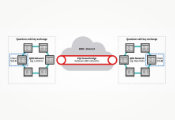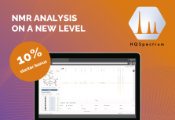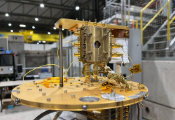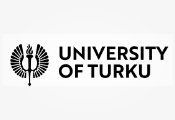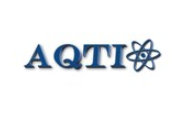Fortifying Europe’s Quantum Communication – Q*Bird and BeQCI Achieve the First Cross-Border MDI QKD Link in Benelux
Delft, June 05 2025 -- In collaboration with Q*Bird, the BeQCI consortium (comprising Belnet, imec, Ghent University among others) and the Luxembourg QCI Lab (LUQCIA), have achieved a major milestone in European cybersecurity infrastructure. This achievement marks the successful deployment of a 132-kilometer quantum key distribution (QKD) link connecting Belgium and Luxembourg. It is the first cross-border Measurement Device Independent QKD (MDI QKD) quantum communication infrastructure in the Benelux region.
At the heart of this achievement is Q*Bird’s Falqon Series, a cutting-edge, multi-user MDI QKD solution. The infrastructure now connects four nodes, including a central hub in Arlon, end nodes at the University of Luxembourg’s QCI Lab in Kirchberg and the European Space Agency (ESA) facility in Redu, creating a scalable, resilient and cost-efficient quantum network.
“This milestone showcases how European collaboration and deep-tech innovation can address one of the most urgent threats of our digital age,” says Joshua Slater, CTO and Co-Founder of Q*Bird. “With our MDI QKD technology, we keep demonstrating that scalable, multi-node quantum networks are no longer theoretical, they are operational and critical for securing quantum network infrastructure.“
“It’s a different technology than in Ghent, where BeQCI connected two locations via one dedicated line,” says Jo Segaert, Network Engineer at Belnet. “The aim is to test this new technology for other types of applications. Working with this technology via a central node can be more cost-efficient and, above all, scalable, as it allows us to connect additional nodes later.”
Quantum threats demand quantum solutions
Traditional cryptography systems rely on computational complexity, which will be rendered obsolete by quantum computers. This looming threat, often referred to as “Q-Day,” highlights the need for quantum-resistant communication channels. The ability to intercept data today and decrypt it tomorrow with quantum computing poses severe risks for governments, institutions and critical infrastructure.
QKD addresses this by using quantum principles, specifically the no-cloning theorem to ensure that any attempt to intercept cryptography keys alters the quantum state and is thus detectable. Q*Bird’s MDI QKD solution further eliminates all security vulnerabilities in the detection devices themselves, which have plagued other QKD systems, making it technically resilient under emerging quantum-safe communication standards.
“We are not just proving that the tech works,” explains Slater. “With our Falqon Series solution, Q*Bird is setting the bar for security compliance, and auditability in a future where quantum threats are real, and trust in communication infrastructure is both legally mandated and technologically enforced.“
From cross-border connectivity to a quantum internet
This deployment forms a critical part of EuroQCI, the European Union’s flagship initiative to build a secure quantum communication network across all member states. The Q*Bird backed network introduces a centralised node architecture allowing easier onboarding of new institutions, greater cost efficiency and enhanced network scalability.
The successful integration of this system into the LUQCIA testbed also enables the interoperability testing of different QKD technologies and quantum key management systems (KMS), which is vital for a federated European quantum internet.
“This is a pivotal first step,” says Jorge Luis González Rios, Technical Coordinator, LUQCIA. “Together with Q*Bird, we are building the fabric of tomorrow’s ultra-secure digital infrastructure. Interoperability across platforms will be key to realizing a quantum-resilient Europe.”
Next steps: Collaborating for a quantum-resilient Europe
The deployment is part of the EuroQCI initiative, a program focused on developing and industrializing next-generation QKD devices and essential components for future quantum networks. This infrastructure will support QKD applications as a quantum-resistant cryptography solution. In the longer term, it will lay the foundation for a quantum internet, facilitating ultra-secure connections between quantum network devices.
As quantum computing advances, regulators, enterprises and governments must act now. The legal frameworks surrounding critical data security are already evolving, with quantum-safe cryptography expected to become a compliance mandate across the EU in the near future.
“We are proud to contribute to Europe’s quantum-secure future: one node, one connection, one milestone at a time,” concludes Slater. “This is not just about quantum, it’s about building trust in the systems we rely on every day.“


